
Barbara Jane O’Brien, MD, discusses expanding clinical trial enrollment criteria to include patients with HER2-positive breast cancer brain metastases.

Your AI-Trained Oncology Knowledge Connection!


Barbara Jane O’Brien, MD, discusses expanding clinical trial enrollment criteria to include patients with HER2-positive breast cancer brain metastases.

Ibrutinib plus venetoclax produced durable complete responses in TP53-mutated mantle cell lymphoma.

Guillermo Garcia-Manero, MD, spotlights 3 key analyses of luspatercept in low-risk myelodysplastic syndrome presented at the 2024 EHA Congress.
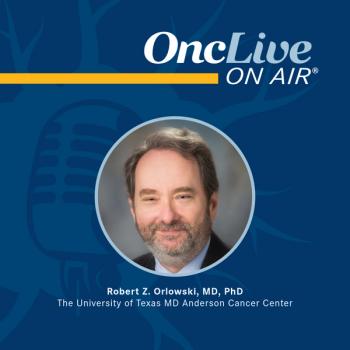
Dr Orlowski discusses key efficacy data from the IMROZ trial of Isa-VRd in newly diagnosed, transplant-ineligible multiple myeloma.

Neil D. Gross, MD, FACS, discusses the neoadjuvant use of cemiplimab for the treatment of cutaneous squamous cell carcinoma.

Naval G. Daver, MD, discusses updated findings from a phase 1/2 study of the menin-MLL inhibitor DSP-5336 in relapsed/refractory acute leukemias.

Jason Abdou Mouabbi, MD, discusses considerations for the use of ribociclib vs abemaciclib in patients with HR-positive, HER2-negative breast cancer.

Daniel M. Halperin, MD, details the FDA approval of lutetium Lu 177 dotatate as well as safety and efficacy data in pediatric and adult patients treated with the agent.
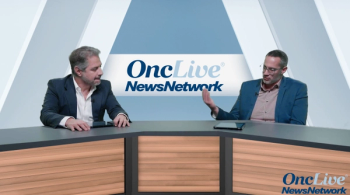
Ibrahim T. Aldoss, MD; and Elias Jabbour, MD, discuss ongoing research efforts in the treatment paradigm of Philadelphia chromosome–positive acute lymphoblastic leukemia.
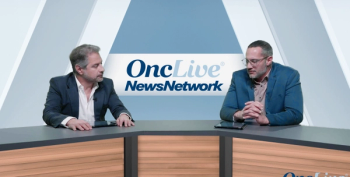
Ibrahim T. Aldoss, MD; and Elias Jabbour, MD, discuss safety findings from the PHALLCON trial of ponatinib in Philadelphia chromosome–positive acute lymphoblastic leukemia.
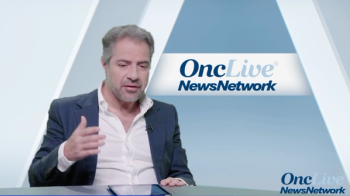
Ibrahim T. Aldoss, MD; and Elias Jabbour, MD, discuss the efficacy with ponatinib observed in the PHALLCON trial of patients with Philadelphia chromosome–positive acute lymphoblastic leukemia.
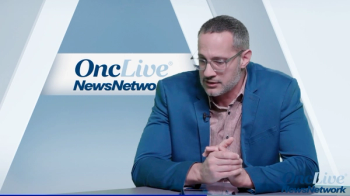
Ibrahim T. Aldoss, MD; and Elias Jabbour, MD, discuss the impact of the FDA approval of ponatinib for the treatment of newly diagnosed patients with Philadelphia chromosome–positive acute lymphoblastic leukemia.
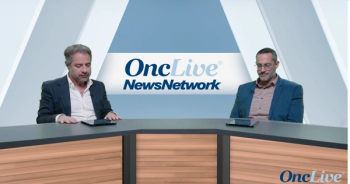
Ibrahim T. Aldoss, MD; and Elias Jabbour, MD, discuss current standards of care for the treatment of patients with Philadelphia chromosome–positive acute lymphoblastic leukemia.
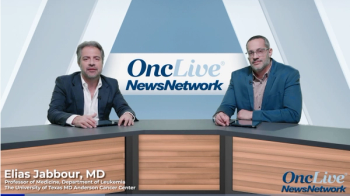
Ibrahim T. Aldoss, MD; and Elias Jabbour, MD, discuss the prevalence and prognostic outcomes of patients with Philadelphia chromosome–positive acute lymphoblastic leukemia.

Patients with leptomeningeal metastasis from HER2-positive breast cancer experienced clinical benefit with tucatinib plus trastuzumab and capecitabine.

Shubham Pant, MD, MBBS, discusses the utility of zanidatamab in patients with previously treated HER2+ biliary tract cancer.

Frontline treatment with acalabrutinib and bendamustine/rituximab (BR) improved PFS over BR alone in older patients with mantle cell lymphoma.

Sattva S. Neelapu, MD, discusses processes that have been adopted to streamline the delivery of CAR T-cell therapy to patients with lymphoma.

Sattva S. Neelapu, MD, discusses key clinical trial data that support the use of CAR T-cell therapy in standard practice for patients with lymphoma.

Neoadjuvant nivolumab/chemotherapy, followed by surgery and adjuvant nivolumab, significantly improved EFS in stage III N2 and stage III non-N2 NSCLC.

Zanidatamab continued to show confirmed responses, disease control, and prolonged overall survival in pretreated HER2+ biliary tract cancer.

Consolidation treatment with durvalumab after concurrent chemoradiation led to a survival benefit vs placebo in limited-stage small cell lung cancer.

Daniel M. Halperin, MD, discusses the FDA approval of lutetium Lu 177 dotatate for pediatric patients with SSTR-positive GEP-NETs.
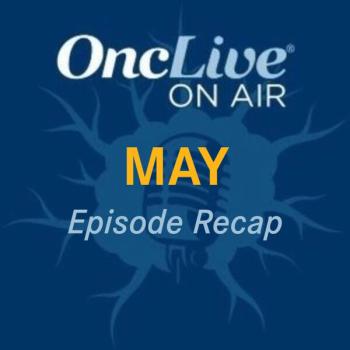
In case you missed any, below is a recap of every OncLive On Air episode that aired in May 2024.
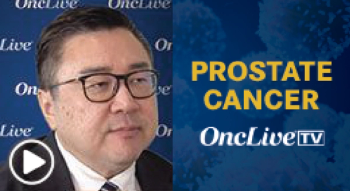
Timothy Yap, MBBS, PhD, FRCP, discusses next steps for investigating saruparib in advanced solid tumors with genetic mutations, including prostate cancer.
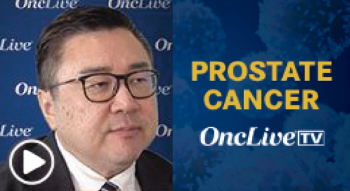
Timothy Yap, MBBS, PhD, FRCP, discusses the rationale for investigating saruparib in advanced solid tumors, such as prostate cancer with genetic mutations.
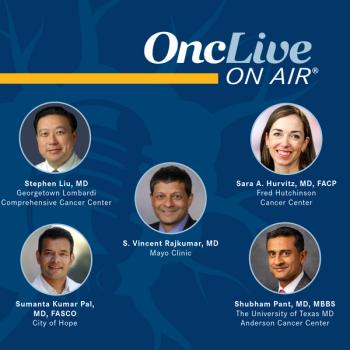
Experts from across oncology specialties discuss the abstracts and presentations they are most looking forward to seeing at the 2024 ASCO Annual Meeting.

Timothy Yap, MBBS, PhD, FRCP, discusses encouraging data seen with the first-in-class PARP1 selective inhibitor saruparib in solid tumors and how the agent is being further investigated.
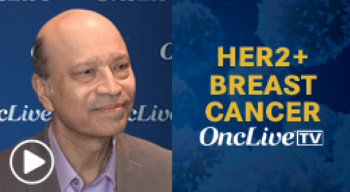
Debu Tripathy, MD, discusses the current state of HER2-positive breast cancer treatment.

Debu Tripathy, MD, discusses real-world strategies for CDK4/6 inhibitor use and the importance of HER2 testing in HER2-positive metastatic breast cancer.